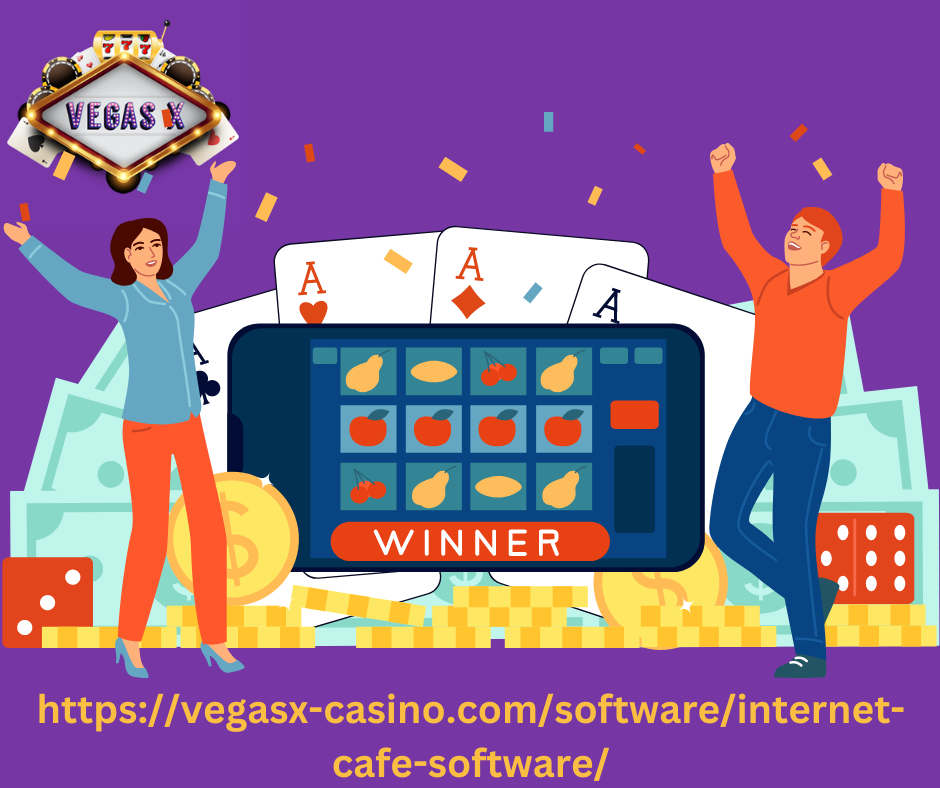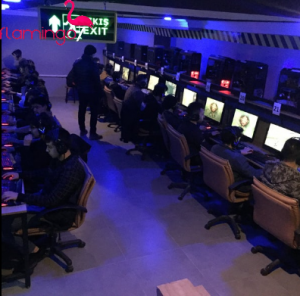Internet Cafe Software: Unveiling Its Vital Role

Internet Cafe Software
In today’s digital age, public computers play a crucial role in providing convenient access to the internet for individuals who may not have their own devices. Whether in libraries, universities, or internet cafes, these public computers serve as valuable resources for browsing, research, and communication. However, ensuring the security and integrity of these shared machines can be a daunting task. This is where Internet cafe software comes into the picture, offering a comprehensive solution to protect public computers and the users who rely on them.
Key Features of Internet Cafe Software
It is a specialized application designed to manage and secure public computer networks. It offers a wide range of features and functionalities that contribute to the smooth operation of internet cafes and similar establishments. Some of the key features include:
1. User management and authentication: It allows administrators to create and manage user accounts, ensuring only authorized individuals can access the computers. This feature helps prevent unauthorized usage and provides accountability for any activities performed on the systems.
2. Time and session management: With it, administrators can set time limits for each user session, ensuring fair usage and preventing any single user from monopolizing the computers. The software can automatically log out users when their allocated time expires, allowing others to access the computers.
3. Content filtering and blocking: To maintain a safe and family-friendly environment, it often includes content filtering and blocking capabilities. It can restrict access to explicit or malicious websites, ensuring users are protected from harmful content and potential security threats.
4. Remote management and monitoring: It enables administrators to remotely manage and monitor the entire network of computers. They can perform tasks such as software updates, system maintenance, and troubleshooting without needing physical access to each individual machine. This feature greatly simplifies the management and administration of public computer networks.
Benefits of Internet Cafe Software
Implementing internet cafe software brings several benefits that enhance the overall security and efficiency of public computer networks. These advantages include:
1. Enhanced security and privacy: It adds an extra layer of security by implementing user authentication and access controls. It helps prevent unauthorized individuals from using the computers and protects user privacy by securely managing personal information.
2. Increased productivity and efficiency: With time and session management features, it ensures fair usage of the computers, preventing any single user from hogging the resources. This promotes a balanced environment and increases overall productivity.
3. Preventing unauthorized access and misuse: By employing user management and authentication features, it reduces the risk of unauthorized access and misuse of the public computers. Users are required to authenticate themselves before gaining access, deterring potential hackers or individuals with malicious intent.
4. Simplified management and administration: Online casino software streamlines the management and administration of public computer networks. It allows administrators to remotely monitor and control multiple systems from a centralized interface, eliminating the need for physical intervention for routine tasks.

Best Practices for Securing Public Computers
While it provides essential security measures, there are additional best practices that can further enhance the protection of public computers:
1. Regular software updates and patches: Keeping the operating system and software applications up to date is crucial for addressing security vulnerabilities and minimizing the risk of exploitation by malicious actors. Regularly installing updates and patches helps ensure the latest security enhancements are implemented.
2. Strong password policies: Enforcing strong password policies for both user accounts and administrative access adds an extra layer of protection. Encouraging users to create unique, complex passwords and regularly updating them helps prevent unauthorized access to the systems.
3. Restricted user permissions: Limiting user permissions to only what is necessary can prevent potential misuse or accidental alterations to system settings. Restricting access to critical files and system configurations reduces the risk of unauthorized modifications.
4. Firewalls and antivirus protection: Employing robust firewalls and antivirus software safeguards public computers against network-based attacks and malware infections. These security measures help identify and block suspicious activities and malicious software, providing an additional layer of defense.
Case Studies: Real-World Examples
Numerous internet cafes have implemented software solutions to secure their public computer networks, experiencing positive outcomes for both customers and businesses. For example, Café Connect, a popular internet cafe in a bustling city, adopted internet cafe gaming to enhance security and streamline operations. By implementing user authentication and content filtering features, Café Connect ensured that only registered users could access the computers and provided a safe browsing environment for all visitors. This resulted in increased customer satisfaction and loyalty, as users felt confident in the security of their personal information and the reliability of the systems.
Another case study is TechHub, a university-based internet cafe that utilized it to manage and monitor its public computer network. With remote management capabilities, TechHub’s administrators could efficiently address technical issues, install software updates, and enforce time limits for users. This proactive approach significantly reduced downtime and improved overall user experience, resulting in higher utilization rates and positive feedback from the university community.
Choosing the Right Internet Cafe Software
When selecting it for securing public computers, it’s important to consider several factors:
- Cost: Evaluate the pricing structure and licensing options of different software providers to ensure it aligns with your budget and business requirements.
- Scalability: Consider the scalability of the software to accommodate the number of computers in your internet cafe. Ensure that the chosen solution can handle future growth and increased user demand.
- Compatibility: Verify that the software is compatible with your existing hardware and operating systems. Compatibility issues can lead to functionality limitations or disruptions in service.
- Popular software providers and their offerings: Research and compare different software providers in the market. Look for reputable providers that offer a comprehensive suite of features, reliable customer support, and positive reviews from other internet cafe owners.
Challenges and Limitations
While online casino internet cafe software offers significant advantages, there are certain challenges and limitations to be aware of:
- Bandwidth management and network congestion: In busy internet cafes with multiple users simultaneously accessing the network, bandwidth management becomes crucial. High network congestion can lead to slower internet speeds and affect the overall user experience.
- Compatibility issues with legacy systems: Some it may not be fully compatible with older or legacy systems. It’s essential to ensure that the chosen software works seamlessly with your existing hardware and software infrastructure.
- Initial setup and training requirements: Implementing it requires initial setup and configuration, which may involve technical expertise. Additionally, staff training is necessary to utilize all the features effectively. Adequate time and resources should be allocated for these processes.
Future Trends in Internet Cafe Software
As technology continues to evolve, it is expected to incorporate several future trends:
- Integration with emerging technologies: It may integrate with emerging technologies such as virtual reality (VR) and augmented reality (AR). This integration can enhance the user experience, offering immersive virtual environments and interactive applications.
- Enhanced data analytics and reporting capabilities: It is likely to provide more advanced data analytics and reporting features. These capabilities will enable administrators to gain insights into user behavior, resource utilization, and overall system performance.
- Cloud-based solutions and remote access: Cloud-based it solutions are becoming more prevalent, allowing administrators to access and manage their systems remotely. This trend enables greater flexibility and convenience in managing multiple locations or remotely troubleshooting technical issues.
Conclusion
Internet cafe software plays a vital role in securing public computers and ensuring a safe and efficient browsing environment. With features like user management, time and session control, content filtering, and remote administration, internet cafe software provides the necessary tools to protect public computers from unauthorized access and misuse. By implementing best practices and considering future trends, internet cafe owners can choose the right software solution that meets their specific needs and contributes to the success of their businesses.
FAQs
FAQ 1: Can internet cafe software prevent hacking attempts? Yes, it can enhance security measures and help prevent hacking attempts by implementing user authentication, access controls, and content filtering features. However, it’s important to regularly update the software and follow additional best practices to stay ahead of evolving security threats.
FAQ 2: Is it possible to customize internet cafe software according to specific needs? Many it providers offer customization options to tailor the software to the specific needs of the business. It’s recommended to consult with the software provider to discuss customization options and any associated costs.
FAQ 3: How does content filtering work in internet cafe software? Content filtering in it involves blocking or restricting access to specific websites or categories of content deemed inappropriate or harmful. The software uses predefined lists or allows administrators to create custom filters based on their desired restrictions.
FAQ 4: Are there any free options available for internet cafe software? Yes, there are free options available for it. However, it’s important to carefully evaluate the features, limitations, and support provided by free software solutions to ensure they meet the security and functionality requirements of the business.
FAQ 5: Can internet cafe software help in monitoring user activities? Yes, it often includes monitoring capabilities that allow administrators to track and log user activities. This helps ensure compliance with usage policies and enables the identification of any suspicious or unauthorized activities.







